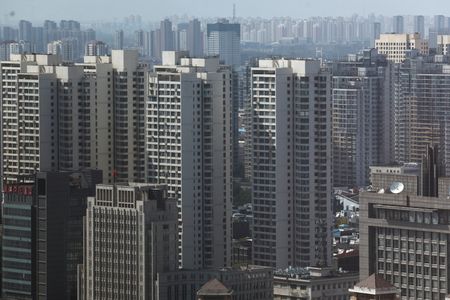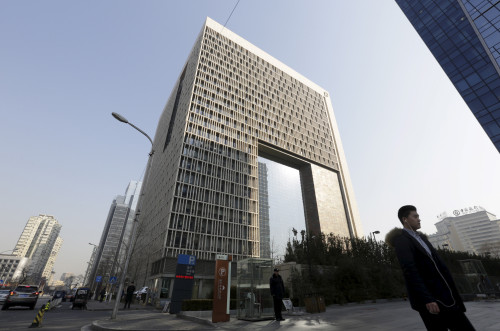BEIJING (Reuters) – China should adhere to the principle that “houses are for living in, not for speculation” for the time being, the state-run Economic Daily said in an editorial on Wednesday, amid an economically damaging downturn in the property sector.
China’s top leaders started using the phrase in late 2016, when they began introducing tighter rules for the property market and its removal from the Politburo statement in July was seen as a signal that some of those curbs could be unwound.
“The positioning of ‘houses are for living in, not for speculation’ should be insisted on and it is not out of date,” the Economic Daily said in an editorial.
“In some popular cities, housing demand still exceeds supply. Once speculation on house prices resumes, China may go back to the old path of the over-reliance on the real estate sector, which will have adverse impacts on economic and social development.”
In July’s key policy meeting, top leaders said China will adjust and optimise property policies in a timely manner, in response to profound changes in the supply and demand relationship in the property market.
The rising risk of default among some developers and faltering economic recovery has led investors to expect more and bigger stimulus to revive the housing market.
But they were disappointed when the People’s Bank of China (PBOC) held the five-year loan prime rate steady on Monday. The five-year rate influences the pricing of mortgages, and some analysts said the central bank may be trying to protect lenders’ margins.
Property-related loans accounts for 40% of banks’ lending, and property ownership accounts for 60% of Chinese household wealth, the Economic Daily said.
Goldman Sachs analysts estimate the housing sector’s contribution to GDP growth is a drag of 1.5 percentage points this year and likely to remain at least slightly negative for the foreseeable future, according to a note on Wednesday.
(Reporting by Ellen Zhang and Ryan Woo; Editing by Simon Cameron-Moore)








